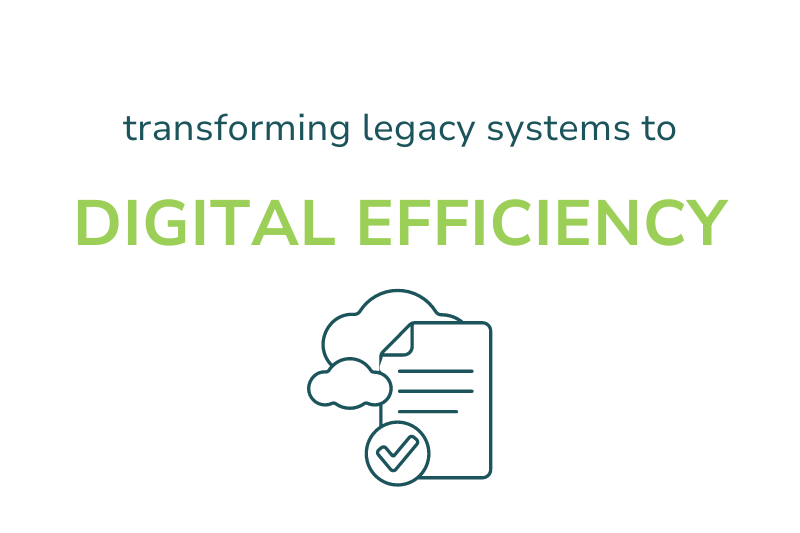In a world riddled with technological advancements, the thought of paper documents or files seems almost unheard of. However, the reality is that many businesses still rely heavily on paper-based processes to manage their records and operations. Despite the pervasive influence of digital technologies, these organizations find themselves at a crossroads, grappling with the complexities of transitioning from traditional paper-based workflows and legacy systems to modern digital solutions.
As industries evolve and consumer expectations shift, the need for businesses to embrace digital transformation becomes increasingly urgent. In this article, we explore the challenges faced by paper-reliant businesses in navigating the journey towards digital transformation.
The Paper Trail: Challenges and Obstacles
Moving from paper to digital isn’t as simple as hitting a button. It comes with its fair share of challenges. We’re talking about dealing with legacy systems, old systems that have been around since dinosaurs roamed the earth, and jumping through hoops to meet regulations. Let’s not forget about security concerns, convincing the team that change is good, scraping together every penny to afford the upgrade, and making sure everyone can actually access the new system. It’s a whole mess of hurdles that remind us just how deep-rooted our love affair with paper really is.
Legacy Systems and Cultural Barriers
Historically, organizations have invested in legacy systems that prioritize paper-based documentation. Employees accustomed to these processes may resist digital transformation, perceiving it as disruptive or unnecessary. Cultivating a culture of innovation and providing comprehensive training are essential in overcoming these cultural barriers.
Regulatory Compliance and Security Imperatives
In sectors like healthcare and legal services, regulatory frameworks mandate the retention of paper records for compliance purposes. Additionally, concerns surrounding data security and privacy remain prevalent, hindering the wholesale transition to digital platforms. Striking a balance between compliance obligations and digital security protocols is crucial in navigating this landscape.
Financial Considerations and Access Challenges
For businesses, particularly those operating on constrained budgets, the upfront costs associated with digitization can be prohibitive. Furthermore, in environments with limited internet connectivity or remote locations, accessing digital records may pose logistical challenges. Addressing financial constraints and ensuring equitable access to digital resources are paramount in fostering widespread adoption.
Streamlining Operations through Digitization
Digitizing documents and files serves as a catalyst for streamlining operations and upgrading from legacy systems. By converting paper-based records into digital formats, businesses gain newfound agility and efficiency in managing information. Digital documents are easily searchable, accessible from anywhere, and can be shared seamlessly across departments, eliminating the inefficiencies associated with manual document retrieval and distribution.
Moreover, digitization lays the groundwork for process optimization and automation, paving the way for a smoother transition from legacy systems to modern, digital workflows. With digitized data at their fingertips, organizations can identify bottlenecks, streamline workflows, and implement data-driven strategies to enhance operational efficiency and drive business growth.
Leveraging Innovative Solutions
Enter Consentia, an expert partner for businesses embarking on their digital transformation journey. With expertise in converting documents into digital format, Consentia offers a comprehensive suite of solutions to facilitate digitization. From document scanning and storage to microfilm and microfiche conversion, along with data entry and transcription services, this Edmonton-based company provides the foundational support needed to kickstart your digital transformation journey.
Embracing a Digital Future
As businesses confront the challenges of digital transformation, proactive adaptation is paramount. By embracing innovative solutions and fostering a culture of digital readiness, organizations can navigate the complexities of digitization with resilience and confidence.
For businesses entrenched in paper-based processes, the time for digital transformation is now. Explore the solutions offered by Consentia and take the first steps toward enhanced efficiency. Visit their website to learn more about how they can support your digital transformation initiatives.

